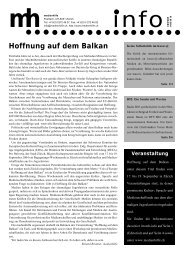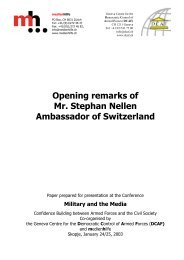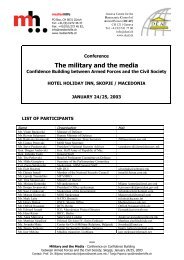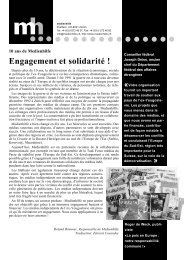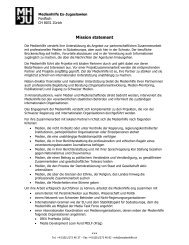The Impact of Media Concentration on Professional ... - OSCE
The Impact of Media Concentration on Professional ... - OSCE
The Impact of Media Concentration on Professional ... - OSCE
You also want an ePaper? Increase the reach of your titles
YUMPU automatically turns print PDFs into web optimized ePapers that Google loves.
<str<strong>on</strong>g>The</str<strong>on</strong>g> Norwegian media house ORKLA issued “Publishing Principles”that guarantee for the editorial independence <str<strong>on</strong>g>of</str<strong>on</strong>g> theirnewspapers. Is there a similar kind <str<strong>on</strong>g>of</str<strong>on</strong>g> guideline in your company?Fig. 13Yes 67No 330 10 20 30 40 50 60 70 80 90 100Orkla or similar principles are in fashi<strong>on</strong> both with journalistsand their employers never mind their political orientati<strong>on</strong>. <str<strong>on</strong>g>The</str<strong>on</strong>g>latest German media company to introduce such rules was thec<strong>on</strong>servative Hamburg/Berlin based Springer group.German print media’s credibility has l<strong>on</strong>g suffered fromthe err<strong>on</strong>eous percepti<strong>on</strong> <str<strong>on</strong>g>of</str<strong>on</strong>g> being too close for comfort toeither political parties or industrial interest groups. <str<strong>on</strong>g>The</str<strong>on</strong>g> reas<strong>on</strong>for such a percepti<strong>on</strong> can be found in history. Early print mediain Germany were “children” <str<strong>on</strong>g>of</str<strong>on</strong>g> political and/or ideologicalareas <str<strong>on</strong>g>of</str<strong>on</strong>g> society.Credibility could be the most important card to play forpublishers in their fight for winning over a populati<strong>on</strong> whichseems, however, to be generally frustrated with German massmedia. A survey c<strong>on</strong>ducted in 1990 showed that 51 per cent <str<strong>on</strong>g>of</str<strong>on</strong>g>Germans would miss televisi<strong>on</strong>. Ten years later this number haddropped by 7 points to <strong>on</strong>ly 44 per cent. Over the same period<str<strong>on</strong>g>of</str<strong>on</strong>g> time the appreciati<strong>on</strong> rate <str<strong>on</strong>g>of</str<strong>on</strong>g> daily newspapers dropped from63 to 52 per cent. 76“Our <strong>on</strong>ly chance to survive in the l<strong>on</strong>g run is to push forquality and credibility” said <strong>on</strong>e German publisher c<strong>on</strong>tactedfor this survey.Journalists, <strong>on</strong> the other hand understand the main purpose<str<strong>on</strong>g>of</str<strong>on</strong>g> such internal statutes as to assist them in keeping theirbearings while their pr<str<strong>on</strong>g>of</str<strong>on</strong>g>essi<strong>on</strong>al world is undergoing dramaticstructural changes.108 THE IMPACT OF MEDIA CONCENTRATION ON PROFESSIONAL JOURNALISM



